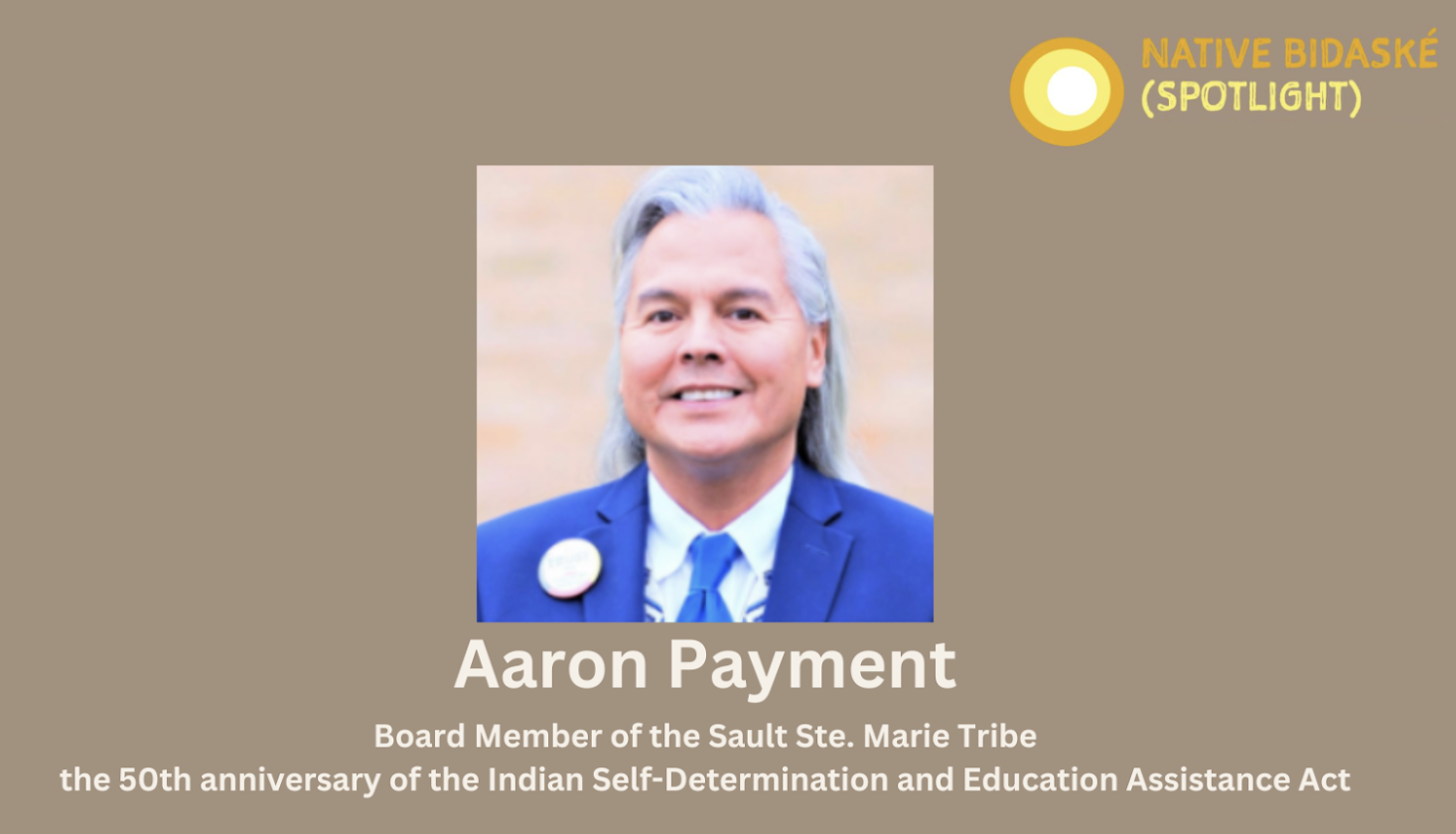
- Details
- By Native News Online Staff
Don’t miss this special episode of Native Bidaské! Join Levi Rickert, editor of Native News Online, as he interviews Dr. Aaron Payment, a tribal council member of the Sault Ste. Marie Tribe with decades of leadership in tribal and national roles. The discussion centers on the 50th anniversary of the Indian Self-Determination and Education Assistance Act, which falls on Saturday, January 4, 2025.
They discuss whether it’s a "celebration" or an "ongoing effort."
Dr. Payment also highlights the critical need for continuous advocacy, emphasizing treaty and trust obligations, improving graduation rates, and addressing the underfunding of Indian Health Services. He also calls for increased and mandatory funding, as well as equity in the Affordable Care Act by eliminating the means test. The conversation includes reflections on Secretary Deb Haaland’s historic tenure as the first Native American to serve in a presidential cabinet and the importance of ongoing implementation and funding to address the impacts of forced assimilation. Dr. Payment shares his expertise on federal Indian policy, historical trauma, and the fight for tribal sovereignty and treaty rights.
Tune in to Native Bidaské LIVE on Saturday, January 4th at 12 EST on Native News Online's Facebook or YouTube channel.
More Stories Like This
Native News Weekly (August 25, 2024): D.C. BriefsUS Presidents in Their Own Words Concerning American Indians
Federal Judge Orders ICE to Halt Use of Pepper Spray, Arrests of Peaceful Protesters in Twin Cities
Tunica-Biloxi Cultural Leader John D. Barbry Walks On
Next on Native Bidaské: Federal ICE Activity in Minneapolis: Ruth Buffalo’s Perspective
Help us defend tribal sovereignty.
At Native News Online, our mission is rooted in telling the stories that strengthen sovereignty and uplift Indigenous voices — not just at year’s end, but every single day.
Because of your generosity last year, we were able to keep our reporters on the ground in tribal communities, at national gatherings and in the halls of Congress — covering the issues that matter most to Indian Country: sovereignty, culture, education, health and economic opportunity.
That support sustained us through a tough year in 2025. Now, as we look to the year ahead, we need your help right now to ensure warrior journalism remains strong — reporting that defends tribal sovereignty, amplifies Native truth, and holds power accountable.
 The stakes couldn't be higher. Your support keeps Native voices heard, Native stories told and Native sovereignty defended.
The stakes couldn't be higher. Your support keeps Native voices heard, Native stories told and Native sovereignty defended.
Stand with Warrior Journalism today.
Levi Rickert (Potawatomi), Editor & Publisher

